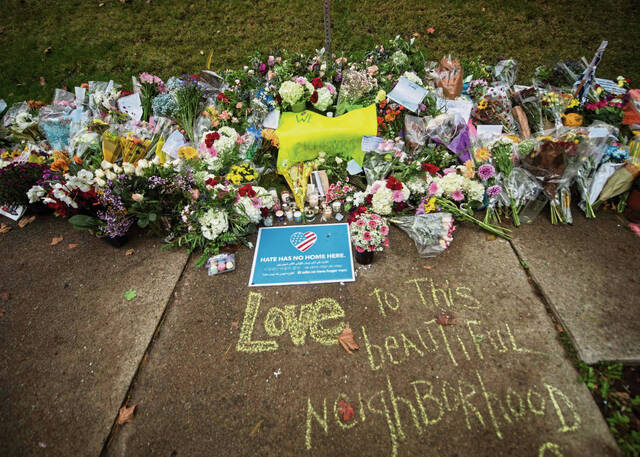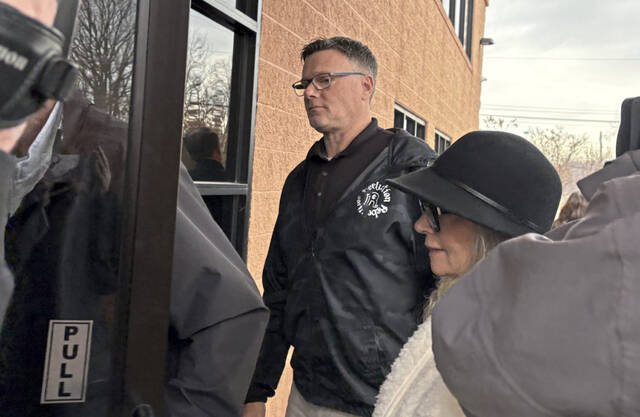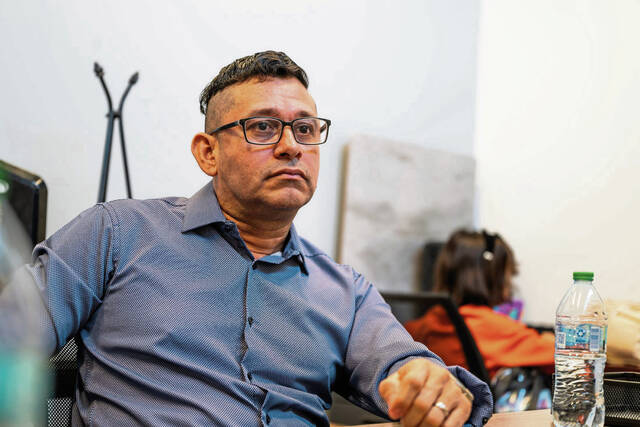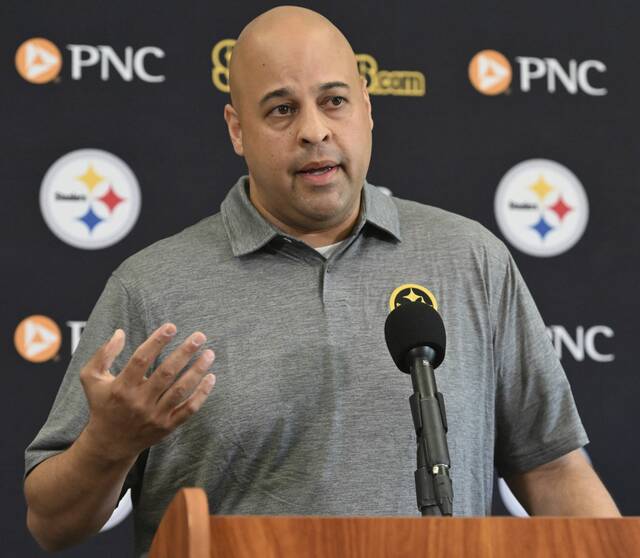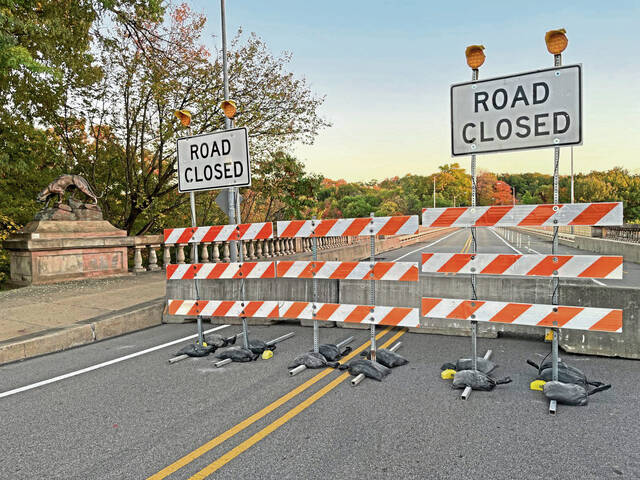Attorneys for the man accused of killing 11 people at a Squirrel Hill synagogue three years ago believe the jury system in federal court in Pittsburgh is flawed because it underrepresents the minority population.
In a 540-page document unsealed Monday, Robert Bowers, who is white, argues that he is entitled to have the charges dismissed — or to have a new grand jury empaneled to consider the indictment against him — based on that underrepresentation.
In its response to Bowers’ motion, the U.S. attorney’s office said that he is not entitled to any relief because he fails to show systemic underrepresentation.
“That is simply not the law, and the defendant points to no case supporting such an unjustified request,” the office wrote.
The defense alleges in its motion that the failure of the jury system to properly represent Black and Hispanic people stems from the Western District of Pennsylvania drawing its potential jury pool only from voter registration rolls where those populations are significantly underrepresented.
The U.S. Attorney’s office attributes the smaller number of minority jurors to the fact that Black and Hispanic people in the jury pool fail to receive and return juror questionnaires at the same rate as white people.
The defense attorneys are asking for a hearing on the issue.
Senior U.S. District Judge Donetta Ambrose has not yet ruled on the motion. She is retiring from the bench in early February, at which time the case will be assigned to a new judge.
Bowers, 49, is charged in federal court with dozens of counts related to the attack on the Tree of Life synagogue building in Squirrel Hill on Oct. 27, 2018. The synagogue housed the Tree of Life-Or L’Simcha, Dor Hadash and New Light congregations.
Bowers was arrested the morning of the attack after he was wounded in a shootout with officers. A federal grand jury later indicted him. The U.S. attorney’s office is seeking the death penalty.
According to the defense motion filed Dec. 7 and unsealed Monday, the panel from which the grand jurors in Bowers’ case were chosen included 85 people, only one of whom was Black. That person was excused from service. There were no Hispanic people, the motion said.
The 23-person grand jury that handed up the indictment against Bowers was all white, the motion said.
According to a study on death penalty cases cited by the defense, in the absence of Black male jurors, capital punishment was imposed in nearly 72% of cases where it was sought versus in nearly 43% when at least one Black man was on the jury.
Because Bowers faces possible death, the defense wrote, the court has a particular obligation to ensure a fair trial.
The motion alleges that the underrepresentation in the jury pool is driven by the district’s policy of drawing only from lists of registered voters, which can be inaccurate, unreliable and out of date.
Attached to the motion was a 2020 lawsuit filed against Allegheny County by the Public Interest Legal Foundation. It said a review of the county voter database showed that more than 1,580 people registered to vote appeared to be dead based on Social Security, obituary and death records and 49 people on the rolls had been born in the 1800s, including one person who would have been 220 years old.
County Solicitor Andy Szefi said the voter rolls are reviewed regularly in accordance with state and federal law, and the lawsuit was resolved.
Bowers’ motion, which includes statistical and expert reports, said the problems in the representation of the jury pool have existed in the Western District since at least 1995.
In 1997, a task force of the Third Circuit Court of Appeals, which presides over the Western District of Pennsylvania, issued a comprehensive report, including findings that there is a perception among attorneys and minority litigants that racial and ethnic minorities are underrepresented in jury pools and in actual juries.
The task force recommended that the district courts supplement their list of jury candidates to more closely align with the racial and ethnic composition of the district, including by using state gross income tax returns, telephone directories, drivers’ license lists, as well as unemployment recipients and lists of utility customers.
The government’s response said the jury pool is drawn from the Pittsburgh, Erie and Johnstown districts of the federal court from voter registration lists provided by the Pennsylvania Department of State every two years. Citing its own expert, the government said that an analysis of the jury source list showed that both Black and Hispanic populations are represented in higher numbers in that list than in the population.
The cause of underrepresentation, their expert found, is that Black and Hispanic people were much less likely to receive their mailed jury questionnaires and much less likely to return them to the court than white people.
Still, the government argued that Bowers cannot show that Black and Hispanic people were being systematically excluded from the jury selection process. In addition, prosecutors wrote, the Western District updated its jury plan in 2020 to allow for the mailing of supplemental jury questionnaires to those who failed to return ones sent initially.
“Such a reform will likely help ensure greater representation of certain demographic groups, principally African Americans, who tend to live in more concentrated areas and who are both less likely to return juror qualification questionnaires and more likely to be sent questionnaires that are undeliverable,” they wrote.


